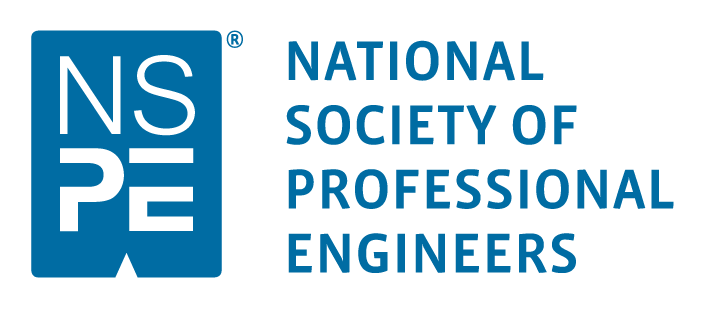A Primer to Spill Prevention Control and Countermeasure Reports (Infographic)
For facility owners and operators that have petroleum and oil product storage units, there’s a nationally recognized plan that they should develop to ensure full compliance with the EPA. This plan is referred to as the Spill Prevention Control and Countermeasure (SPCC) Plan.
The SPCC plan is a document that addresses the management, safety, and environmental risks that come with storing oil-based products and other hazardous substances in facilities. When developed by a professional, it can help the facility manage a spill or leak accident more efficiently, as well as save the facility thousands of dollars in penalties from the EPA.
The SPCC plan is a highly-technical document that must be accurately prepared and routinely reviewed so that any risk of oil spills or leakage can be prevented, and that non-compliance issues are addressed before they lead to more significant problems.
What is the Oil Pollution Prevention Regulation?
In 1973, the Environmental Protection Agency (EPA) enacted the Oil Pollution Prevention Rule (40 CFR 112). It amended the Clean Water Act and set forth the requirements for:
- The prevention of,
- Preparedness for, and
- Response to oil discharges at specific non-transportation-related facilities.
The types of oil covered by this rule include but are not limited to: petroleum; fuel oil; sludge; oil refuse; oil mixed with wastes other than dredged soil; fats, oils or greases of animal, fish, or marine mammal origin; vegetable oils, including oil from seeds, nuts, fruits, or kernels; and other oils and greases, including synthetic oils and mineral oils.
Under the EPA’s oil spill prevention program is the SPCC rule which mandates facilities to develop a mitigation plan.
The purpose of an SPCC Plan is to establish procedures, methods, and equipment to prevent discharge of oil into the waters of the United States. The SPCC plan identifies the facility inventory, potential releases (overflow, rupture, leakage, spill pathway), spill prevention (engineering controls and procedures), spill containment, inspection and recordkeeping, and personnel training.
What facility is required to comply with the SPCC rules?
A facility that meets the following criteria is required to develop an SPCC plan:
- It must be non-transportation-related, e.g., fixed onshore and offshore oil well drilling facilities; industrial, commercial, agricultural, or public facilities using or storing oil; or highway vehicles and railroad cars used to transport oil exclusively within the confines of a non-transportation related facility; and
- It must have an aggregate aboveground storage capacity of greater than 1,320 gallons or a completely buried storage capacity of greater than 42,000 gallons;
- There is a reasonable expectation of a discharge into or upon navigable waters of the United States or adjoining shorelines; and
- The State or Local Regulatory Agency requires a Spill Prevention Plan under 40 CFR 112.
Why Having an SPCC Plan Is Important for Facility Operators
There are several reasons a facility should create an SPCC plan – even if they don’t meet the criteria set by the EPA:
- SPCC inspections conducted by a professional engineer can help minimize risk by evaluating infrastructure to prevent potential leaks or spills from fuel tanks.
- SPCC plans require a full-site diagram, which can also be used by the company as a basis for the other health and safety initiatives and could be instrumental in minimizing damages in the event of an emergency.
- An updated SPCC plan can save the facility a significant cost due to fines from the federal or state regulating agencies.
- An SPCC plan can provide peace of mind and the knowledge that the facility is prepared if an accident were to occur.
Do You Need to Hire a Professional Engineer for SPCC Planning?
The preparation of the SPCC plan is the responsibility of the facility owner or operator, which means that they can either do the planning themselves or hire an expert. However, there are several reasons why operators should not do it by themselves.
As with many federal environmental regulations, the EPA’s SPCC regulations can be complicated to understand, let alone to comply with, especially for facilities that lack internal resources for compliance. From determining the facility’s qualification to developing the actual measures for oil spill prevention, it requires the expertise of a Professional Engineer to prepare an SPCC plan.
If the facility owner or operator lacks the same expertise and experience in environmental regulations and oil storage management, then it would be in their best interest to retain the service of an outside expert.
Furthermore, it makes more practical sense to retain a Professional Engineer – from developing to certifying – to do an SPCC plan as it is required to be verified by them.
According to the EPA, by certifying the SPCC plan, the Professional Engineer, having examined the facility, attests that:
- They are familiar with the requirements of 40 CFR 112;
- They or their agent have visited and inspected the facility;
- The plan has been prepared following good engineering practices, including consideration of applicable industry standards, and with the requirements of 40 CFR 112;
- Procedures for required inspections and testing have been established; and
- The plan is adequate for the facility.
The professional engineers at Lockatong Engineering are trained and have years of experience in preventing an oil spill. They have the necessary technical understanding of the SPCC rules to help facilities prepare on how to respond appropriately if there is an oil spill.
Our Professional Engineers have inspected hundreds of industrial facilities – from small, family-owned businesses to multi-state industrial facilities. Regardless of the business’ size or industry, Lockatong Engineering is here to help companies to achieve a complete SPCC plan and report.
To learn more about our SPCC planning and reporting services, visit our website today at www.lockatong.com








